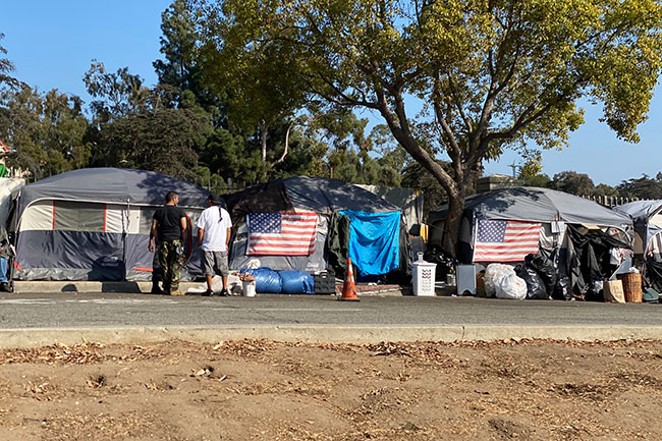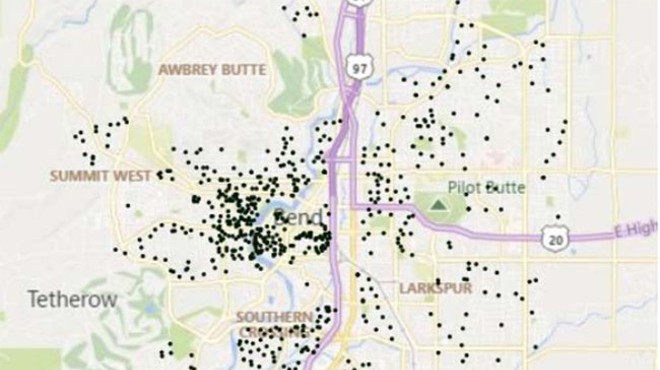This past Tuesday, the City of Bend held the first of two open houses intended to "inform the community about how developing an unsanctioned camping code fits into the City and community response to homelessness." Another one takes place Aug. 29.
Over the past several months the Bend City Council has begun establishing "time, place and manner" guidelines that will serve as a guidepost to where and when people can camp in tents or other temporary shelters around Bend. Suffice to say there's almost nothing more controversial going on in Bend right now—save the other conversation about where to site managed camps.
Thus far, nothing has been set in stone, though at its early-August meeting the Council did indicate support for banning camping in the public rights of way in residential zones, within a certain distance from waterways and on city properties—with possible caveats.
Community members attending Tuesday's meeting asked questions and shared concerns about everything from the campers at Hunnell Road to how income inequality is playing into the situation of having upward of 1,200 people experiencing homelessness in Crook, Jefferson and Deschutes counties, according to the most recent Point in Time Count. Some threatened to sue the City should it execute this new code without having the number of shelter beds available in the city be matched to the number of people experiencing homelessness. Still others expressed concern that new codes are being put in place, all while, according to their accounting, present city codes are not even being enforced.
We do not envy the city leaders whose job it is to put this program in place. On the one hand, some will say that new restrictions add difficulty to those experiencing homelessness. On the other, some will say that the City is being too permissive by putting into place a new set of codes that outline where, exactly, people CAN camp. In other words, some will see the act of putting a set of camping codes into place as being overly restrictive, while others will see it as being overly permissive.
Among the "sticky widgets" in this scenario is the notion of enforcement. Councilors and city staff appear in agreement that cops should not be the first points of contact when a camp is found to be in violation of any future camping code. So who, then, will those enforcement people be? Will anyone besides cops sign up to be the vanguard of the camp-clearing brigade, and of the people who might willingly sign up, will they possess the knowledge, skills and empathy needed to handle the difficult and emotional work of moving someone from a place they call home?
Right now, councilors are working through the nuts and bolts of time, place and manner guidelines, and we agree with councilors who have stated that while this is not a job they relish doing, the alternative—not having any guidelines in place at all—is the less-humane route in a housing, economic and cultural situation that is far from humane. Still, we also agree with those who believe that tackling the issue of enforcement—who will do it, how we'll pay for it—should be addressed sooner rather than later.






















